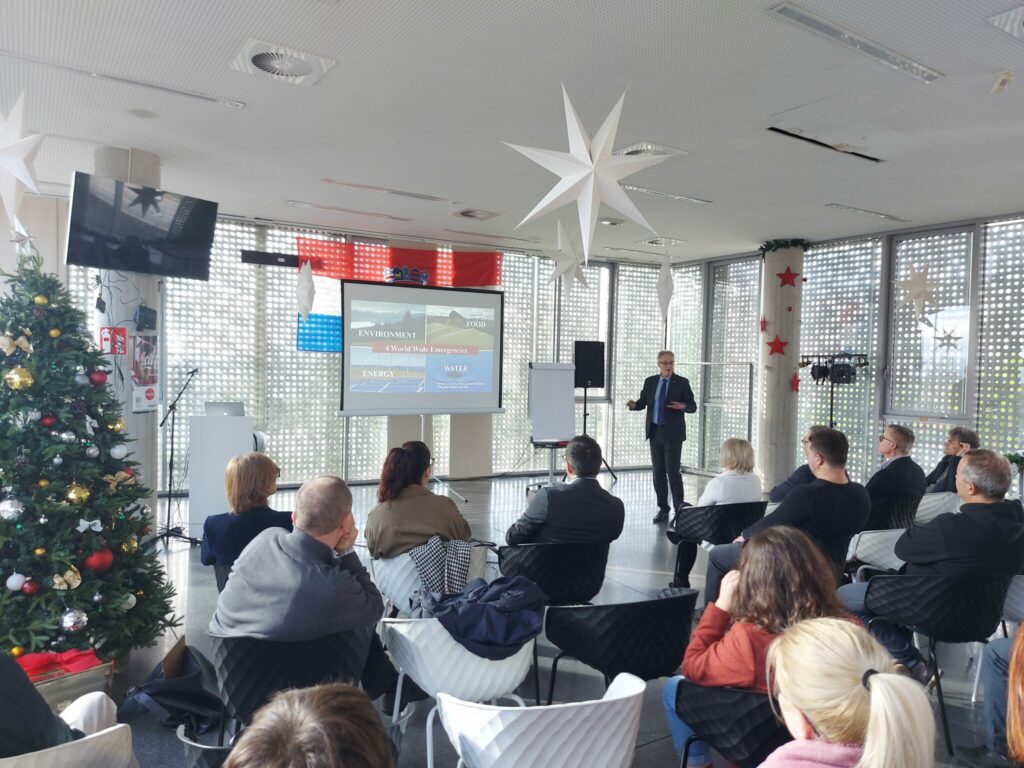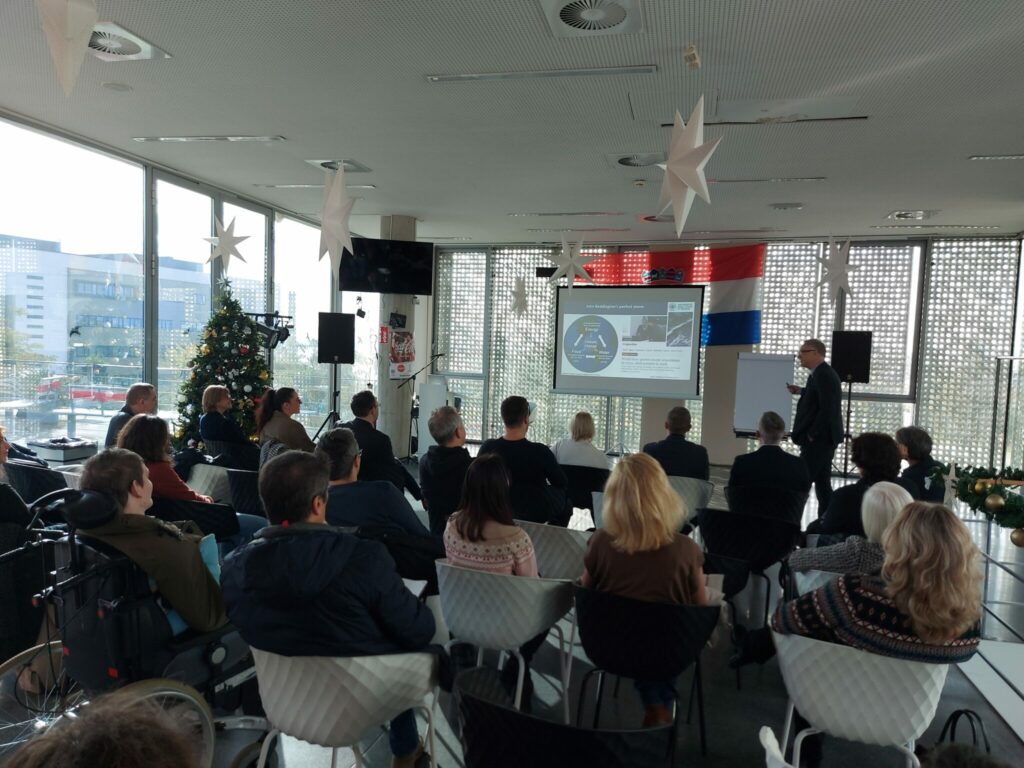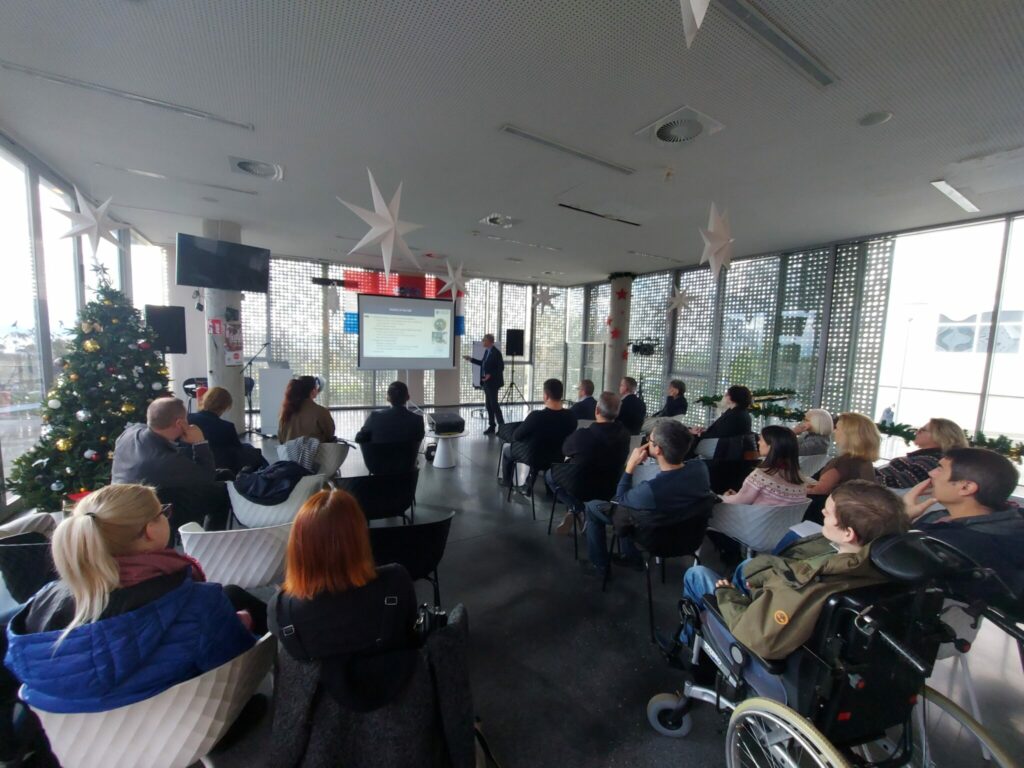Professor Maurizio Fermeglia, Ph.D., full professor at the Department of Engineering and Architecture of the University of Trieste and former Rector of the University of Trieste, Italy, held a lecture entitled Hydrogen and global warming: the energy carrier of the future at the University of Rijeka Campus on Wednesday, December 7, 2022. The esteemed lecturer and all participants were warmly welcomed by the University of Rijeka Rector, Prof. Snježana Prijić-Samaržija, Ph.D., while Prof. Saša Zelenika, Ph.D., Vice-Rector for Strategic Projects, moderated the discussion after the lecture.
As Europe and the world struggle to provide a reliable energy supply and contribute to the fight against climate change, Fermeglia emphasized that we must be aware of future scenarios based on energy, economic, and environmental indicators.
The lecture began with an analysis of the effects of global warming and its effects on the environment, starting with data on the concentration of carbon dioxide in the atmosphere and ending with the rise in air and water temperatures. Other environmental impacts caused by greenhouse gas emissions were also mentioned, i.e. rising sea levels, melting glaciers and permafrost, and changes in plant productivity.
Given that there are different sources and carriers of energy, Professor Fermeglia also addressed the evaluation of energy production and consumption, especially emphasizing the increase in the world’s population and the need for better living conditions. The lecture also gave an insight into the pros and cons of the use of hydrogen as an energy carrier.
Referring to John Beddington’s prediction of a ‘perfect storm’ that should hit the world in 2030 due to food shortages and water and energy costs, Professor Fermeglia pointed out that the best processes that can produce energy with maximum efficiency and minimum environmental impact must be identified. Otherwise, the desired economic development will be threatened, and bad choices could irreversibly affect the natural balance of our planet.


